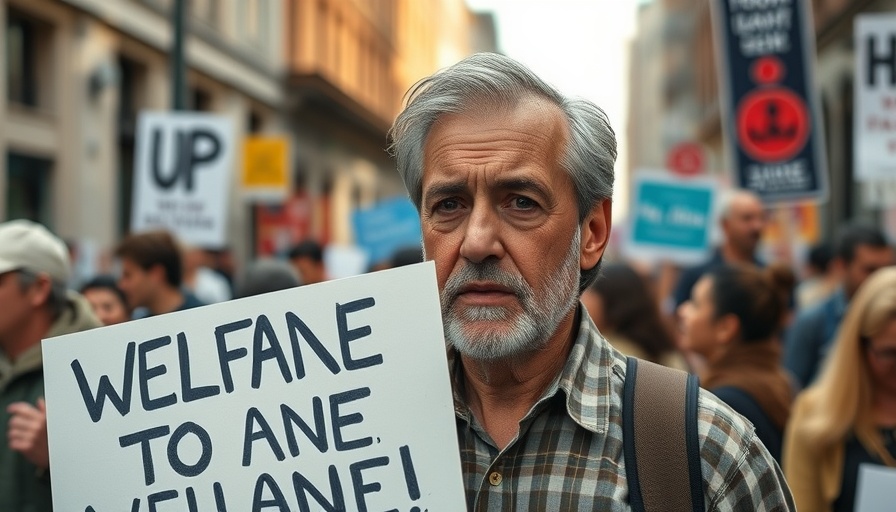
Revised UK Welfare Reforms: A Shift Towards Poverty
The UK's recent changes to welfare reforms are poised to thrust approximately 150,000 individuals into poverty. As the government reconfigures its support systems, the ripple effects on society and the economy are bound to be significant. The new guidelines primarily target those relying on welfare benefits, potentially exacerbating the already strained socio-economic environment.
Understanding the Welfare Reforms
The welfare reforms aim to streamline several existing benefits into a single system, but critics argue that this approach neglects the needs of vulnerable populations. Cutting support for low-income families may lead to increased reliance on food banks and exacerbated housing instability. As various sectors, such as housing and healthcare, grapple with the implications of these cuts, the question arises: who will be left to pick up the pieces?
Historical Context and Background: The Evolution of Welfare Systems
The welfare system in the UK has undergone numerous transformations over the decades, reflecting changing political ideologies and economic landscapes. Historically, these systems were designed as a safety net for the most vulnerable demographics including children, the elderly, and those with disabilities.
With each reform, a balancing act between economic sustainability and social support has become evident. This latest round continues a trend of austerity measures that many believe directly correlate with rising poverty levels.
Relevance to Current Events: Is It Just Policy or Political Strategy?
As geopolitical tensions rise and the economy faces uncertainty, the timing of these reforms raises eyebrows. Some speculate that these policy shifts may be politically motivated, aimed at demonstrating fiscal responsibility ahead of upcoming elections. In this turbulent climate, the welfare debate has once again become politically charged, with implications reaching far beyond the welfare recipients affected.
Future Predictions: The Unfolding Impact on Society
Looking ahead, the implications of these reforms could be dire. Experts warn that the increase in poverty levels will not only affect those directly receiving benefits but could also strain public services. Increased poverty often correlates with higher healthcare costs, rising crime rates, and decreased educational outcomes.
This evolving landscape calls for innovative solutions. Potential trends in community support networks and investments in education and job training could provide viable ways for supporting the most impacted. As businesses and organizations in the Bay Area are urged to uphold corporate social responsibility, how they respond to these socio-economic shifts could indeed define the future.
Common Misconceptions: Debunking Myths Surrounding Welfare
Misunderstandings about who benefits from welfare aid persist in public discourse. Many hold the misconception that welfare is primarily abused or misused. In truth, statistics show the average welfare recipient is an individual or family struggling to meet their basic needs, often caught in a vicious cycle of poverty due to systemic barriers.
As awareness grows, addressing these myths and educating communities about the realities of welfare can lead to more compassionate policy conversations and greater societal support for vulnerable populations.
Actionable Insights: Next Steps for Business and Community Leaders
For those in positions of influence—whether in business, community leadership, or policymaking—understanding these reforms' potential consequences is vital. Direct action can be taken by advocating for community programs aimed at job training, health support, and educational initiatives to counterbalance the effects of decreased government support.
Furthermore, partnerships between local businesses and social enterprises can pave the way for innovative solutions that empower individuals rather than stigmatizing them. A culture of support nurtured by corporate entities at this critical juncture could lead to significant societal change.
Conclusion: A Call to Action for Empathy and Support
The recent UK welfare reforms may indeed push many into poverty, but through collective effort, awareness, and innovative community engagement, there is hope. As business leaders and individuals, it’s imperative to advocate for vulnerable populations and explore pathways to uplift those affected. Together, we can foster a sustainable future for all.
 Add Row
Add Row  Add
Add 



Write A Comment